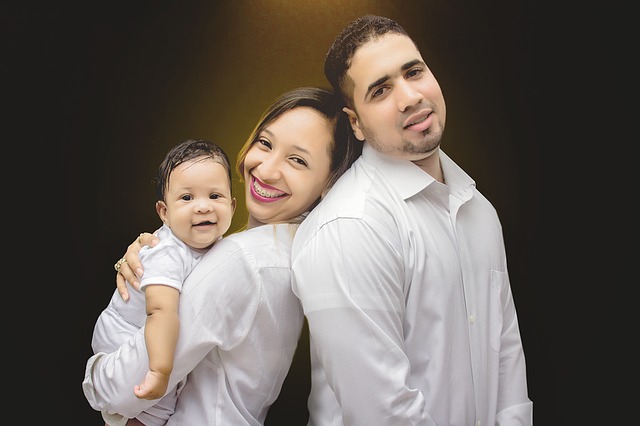If your family is going through a tough time — whether it’s from stress, anger, or grief — family therapy can make a difference. It can help couples, children, or members of an extended family learn to communicate better and work through conflicts.
Problems in your family can affect all areas of family members’ lives. You and your loved ones might notice trouble cropping up at work, at school, or in everyday interactions with other people.
When it feels like the issues in your family are too big for you to handle — and aren’t getting better — it may be time to see a therapist. He or she can help you find new ways to manage struggles, conflicts, and challenges.

Some of the things that therapists can help with are:
Reference: WebMD
FORM

Therapy can help treat mental, emotional, physical, and behavioral issues. Concerns that may be discussed in therapy include, but are not limited to:
Many kinds of mental health professionals provide therapy. The standards for becoming a therapist usually depend on a state’s licensing board. Therapists often have a master’s or doctoral degree. They may also have specific training in psychological counseling. Students working toward an advanced degree may provide therapy with direction from a licensed supervisor.
Therapists can have many titles. These are based on their level of education, training, and role. They can work as licensed professional counselors (LPC), psychologists, licensed marriage and family therapists (LMFT), licensed clinical social workers (LCSW), psychiatric nurses, or psychiatrists.


The first session of therapy often focuses on gathering information. A therapist speaks with the person in treatment about their past physical, mental, and emotional health. They also discuss the concerns bringing the person to therapy. It can take a few sessions for a therapist to have a good understanding of the situation. Only then can they address concerns and determine the best course of action.
The person in therapy can also use their first session to decide if the therapist’s style is a good fit for their needs. Finding a therapist you are comfortable with is vital to successful treatment. It is important to talk about the type of therapy to be used, treatment goals, session length, and how many sessions are needed.
Many therapists encourage people in treatment to do most of the talking. At first, it may be hard to talk about past experiences or current concerns. Sessions may stir up intense emotions. It is possible to become upset, angry, or sad during treatment. However, therapists can help people build confidence and become more comfortable as sessions progress.
Therapists might assign “homework” to help the people in their care build on topics discussed in therapy. Individuals in treatment can also ask questions at any point in the process. As time passes, people in therapy may develop a more positive mood and healthier thinking patterns.
People in treatment can expect confidentiality during therapy sessions. But, a therapist may break confidentiality if someone is in immediate danger of harming themselves or others. Therapists may also do this if required to by federal or state law. Many therapists explain the limits of confidentiality and provide written guidelines during the first therapy session.
There are many forms of therapy. Some types of treatment work better than others when handling different issues. It is common for therapists to combine ideas from different approaches when addressing a person’s needs.
Cognitive behavioral therapy (CBT) is one of the most popular and effective types of therapy. This approach helps people look at the connection between thoughts, emotions, and behaviors. Then, people can replace negative thinking patterns with positive ones. The belief behind CBT is that healthy thoughts often promote positive feelings and productive actions.
Other effective approaches include:


Individual therapy sessions often last from 45 to 60 minutes. How often sessions occur and how long they are depend on many factors, including:
Some concerns can be addressed through short-term therapy over a few weeks. However, chronic or more complex concerns can require long-term treatment. Sometimes, it may take more than a year for noticeable progress to be made.
Even if therapy cannot cure a condition, it can help people develop healthy coping skills. Determination to be active in therapy and heal is essential for meeting therapeutic goals and fostering a positive therapeutic relationship. Finding the right therapist is also crucial to the treatment process.
Research shows that therapy may result in fewer relapses of common conditions, including moderate depression and anxiety. Furthermore, it indicates that the positive effects of good therapy extend beyond treatment. Many people report improved conditions long after therapy has ended. Therapy is often more effective than psychotropic medication or medical treatments alone. When used on their own, those treatments may cause harmful side effects. Many therapeutic approaches are also evidence-based. This means they have been subject to research studies and clinical observations to test their effectiveness.
The term “psychotherapy” comes from the Greek words for soul and healing. Ancient Greeks may have been the first to view mental health issues as physical and mental conditions. At the time, some other cultures understood them as the result of demonic possession. Still, the Greeks’ understanding of mental health issues was limited. They did recognize the benefits of using encouraging words when speaking to people with mental health issues. But, they also had many false beliefs about mental health. For example, they thought only women experienced hysteria. The also believed bathing was an effective treatment for people with depression.
Treatment for severe mental health conditions was often harsh and inhumane until reformers worked for better conditions during the 18th century. In 1773, the first asylum in North America was founded. By the end of the 19th century, most American towns had an asylum. However, individuals admitted to an asylum rarely left the facility. This led to a steadily increasing population of institutionalized people. It was not uncommon for care at asylums to include the use of restraints and violent treatment by doctors.
It is likely that informal types of therapy were practiced throughout human history. However, modern psychotherapy developed near the end of the 19th century in western Europe. During this time, the first laboratory for psychological research was established by Wilhelm Wundt, and Sigmund Freud’s “talking cure” laid the foundation for psychoanalysis.
Many therapeutic techniques flourished in the 20th century. These techniques were largely inspired by popular schools of thought at the time. Some of these schools of thought include psychoanalysis, behaviorism, cognitivism, and systems psychology. In the 21st century, there are many treatments that incorporate diverse fields, such as mindfulness and neurobiology. Many approaches focus on helping people in treatment identify their concerns, foster personal growth, and develop healthy coping skills.
If your family is going through a tough time — whether it’s from stress, anger, or grief — family therapy can make a difference. It can help couples, children, or members of an extended family learn to communicate better and work through conflicts.
Problems in your family can affect all areas of family members’ lives. You and your loved ones might notice trouble cropping up at work, at school, or in everyday interactions with other people.
When it feels like the issues in your family are too big for you to handle — and aren’t getting better — it may be time to see a therapist. He or she can help you find new ways to manage struggles, conflicts, and challenges.
Some of the things that therapists can help with are:
SERVICES
INSURANCE RESOURCES
CONTACT INFO
EMAIL US